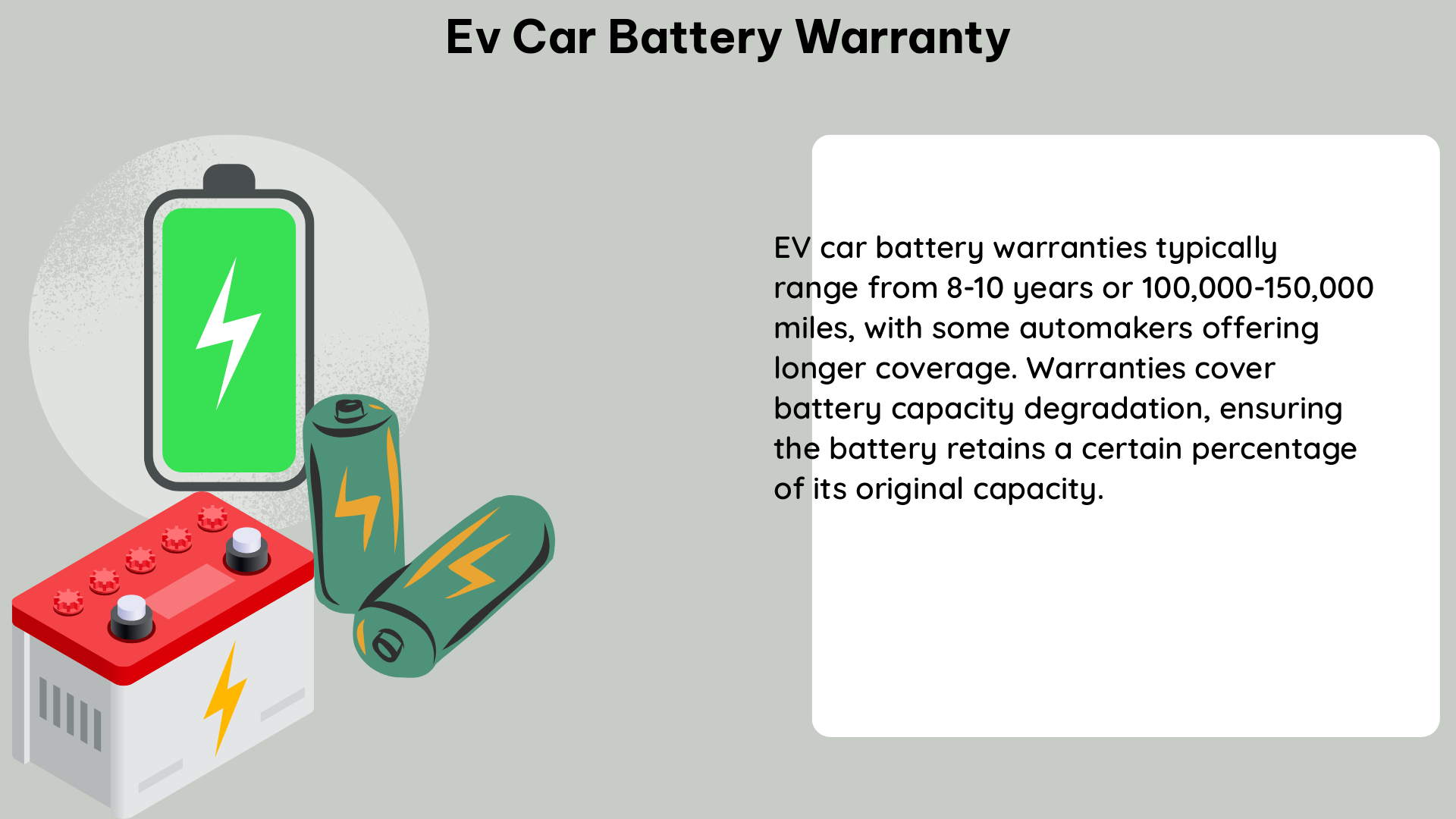The electric vehicle (EV) market has seen exponential growth in recent years, and with it, the importance of understanding the warranty coverage for EV batteries has become increasingly crucial. This comprehensive guide delves into the intricacies of EV car battery warranties, providing you with the knowledge and insights to make informed decisions when purchasing or owning an electric vehicle.
Understanding the Federal Regulations on EV Battery Warranties
The federal regulation regarding EV battery warranties is not explicitly stated in the U.S. Code, but it is generally accepted that manufacturers must warranty their EV components or batteries for a minimum of 8 years or 100,000 miles. This requirement is not directly specified in the law, but it is widely discussed and referenced in various industry articles and forums.
It’s important to note that this minimum warranty requirement applies to the entire EV battery pack, including individual battery cells, modules, and the battery management system. Manufacturers are obligated to ensure that their EV batteries maintain a certain level of performance and capacity throughout the warranty period.
Analyzing EV Battery Lifespan and Degradation Patterns

To better understand the longevity of EV batteries, let’s examine the real-world performance of some of the oldest EV models on the market. The Nissan LEAF, one of the pioneering EVs, has shown a range of outcomes in terms of battery health. Early LEAF models, equipped with passive thermal management systems and problematic battery chemistries for hot climates, often experienced significant degradation, leading to the need for battery replacements.
In contrast, the Tesla Model S has demonstrated impressive battery resilience, with many older models still retaining around 80% of their original range even after a decade of use. This can be attributed to Tesla’s advanced battery management systems and thermal control strategies, which have helped to mitigate the effects of battery degradation.
Predicting the Lifespan of Modern EV Batteries
As the EV industry continues to evolve, manufacturers are working hard to meet and exceed the minimum warranty requirement of 8 years or 100,000 miles set by the federal government. Modern EV batteries are expected to outlast the lifetime of the car itself, with many experts predicting a lifespan of 15 years or more for well-maintained batteries.
However, the exact lifespan of EV batteries is not yet fully known, as many of the latest models have not yet reached the end of their life cycle. Factors such as driving conditions, charging habits, and battery chemistry play a crucial role in determining the longevity of EV batteries.
Navigating the EV Battery Replacement Process
While EV batteries are designed to last for the lifetime of the vehicle, it is possible to replace them if necessary. The cost of battery replacement can vary significantly, with some estimates ranging from $10,000 to $20,000 or more, depending on the make, model, and battery capacity.
Fortunately, the majority of battery replacements happen under the manufacturer’s warranty, which covers the battery pack for a minimum of 8 years or 100,000 miles. This provides EV owners with a level of protection and peace of mind, ensuring that they are not solely responsible for the cost of a battery replacement during the warranty period.
Monitoring EV Battery Health with Specialized Tools and Apps
To help EV owners stay informed about the health and performance of their vehicle’s battery, there are various tools and apps available on the market. One such solution is Recurrent’s battery health monitoring service, which uses telematics data and machine learning algorithms to predict battery degradation and range loss.
By leveraging this type of technology, EV owners can proactively monitor their battery’s condition and make informed decisions about maintenance, charging habits, and potential battery replacements. This can help extend the overall lifespan of the battery and ensure that the vehicle continues to perform at its best.
Conclusion
The EV car battery warranty landscape is complex, but understanding the key details can empower EV owners to make informed decisions and maximize the longevity of their vehicle’s battery. By familiarizing yourself with the federal regulations, analyzing real-world battery performance data, and utilizing specialized tools and apps, you can navigate the world of EV battery warranties with confidence.
Remember, the EV battery is a critical component of your electric vehicle, and its proper care and maintenance can significantly impact the overall ownership experience. Stay informed, stay proactive, and enjoy the benefits of your electric car for years to come.
References:
– Factors Affecting the Degradation of Lithium-Ion Batteries for Electric Vehicles: A Comprehensive Review
– U.S. Federal Regulation on EV Battery Warranties
– Lessons in Electric Car Battery Health
– Degradation Mechanisms and Life Prediction for Lithium-Ion Batteries in Electric Vehicles
– Your Guide to EV Batteries: Premature Death, Range Loss, and Preservation

The lambdageeks.com Core SME Team is a group of experienced subject matter experts from diverse scientific and technical fields including Physics, Chemistry, Technology,Electronics & Electrical Engineering, Automotive, Mechanical Engineering. Our team collaborates to create high-quality, well-researched articles on a wide range of science and technology topics for the lambdageeks.com website.
All Our Senior SME are having more than 7 Years of experience in the respective fields . They are either Working Industry Professionals or assocaited With different Universities. Refer Our Authors Page to get to know About our Core SMEs.